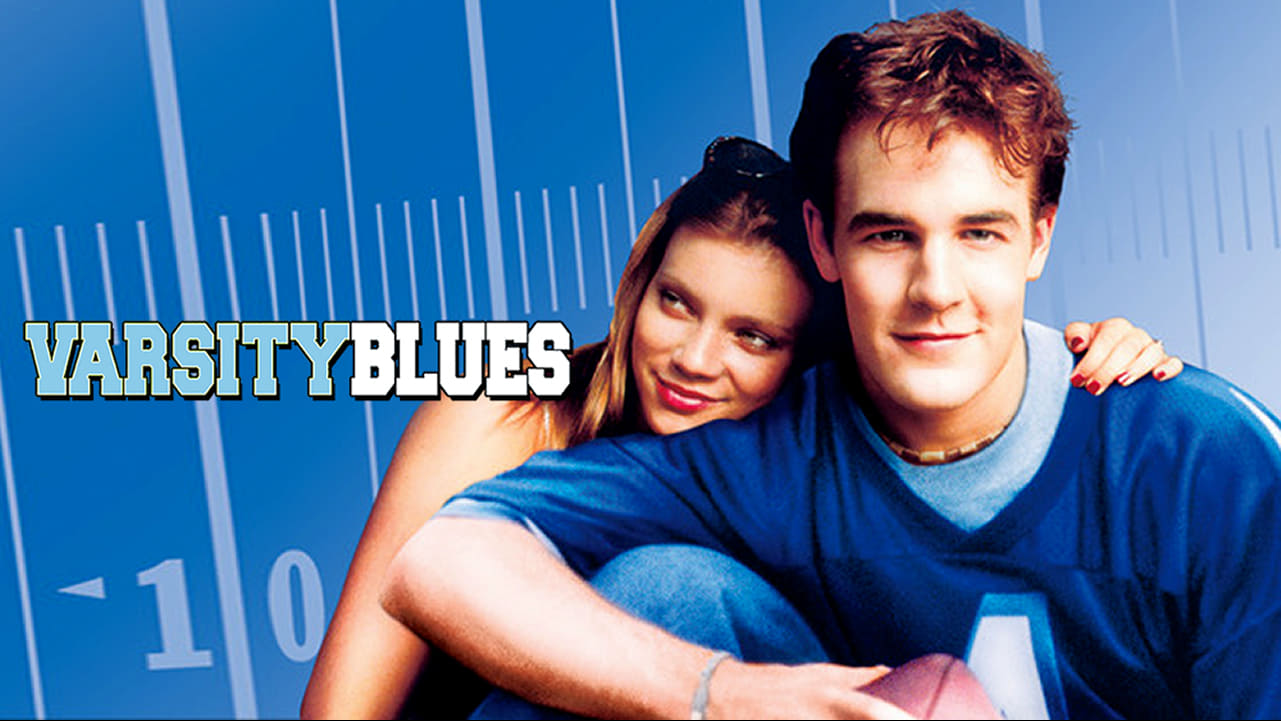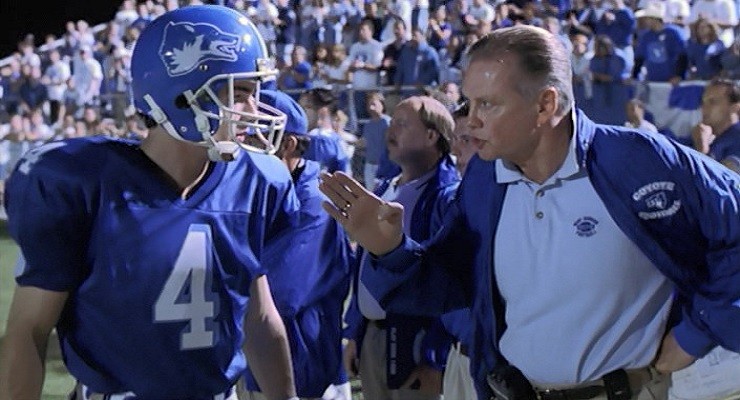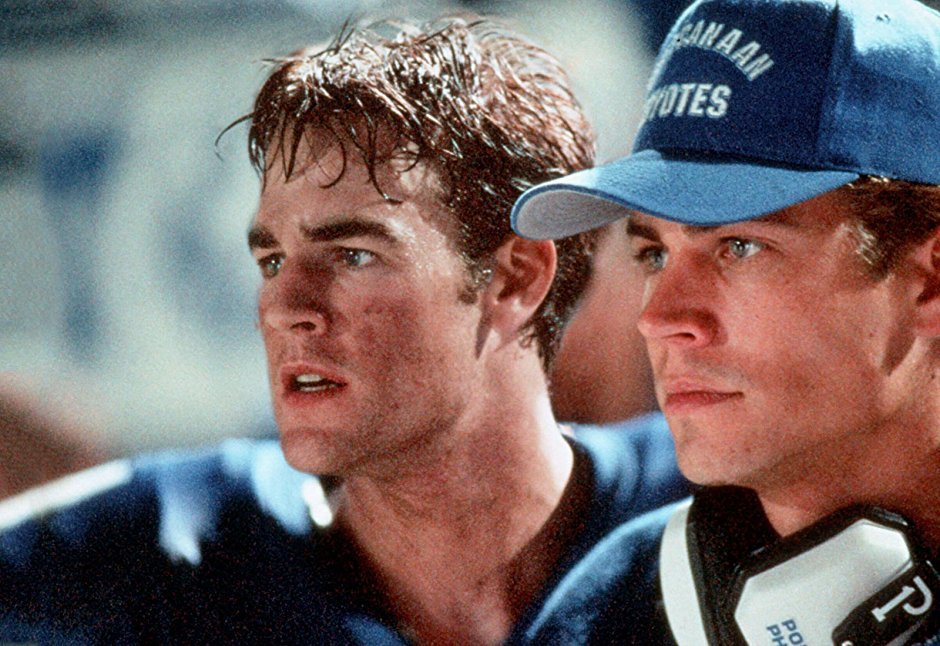Varsity Blues (1999)

Varsity Blues (1999) is a sports drama directed by Brian Robbins that explores the intense world of high school football in a small town. Set against the backdrop of a football-crazed community, the film delves into the pressures placed on young athletes, the challenges of balancing personal dreams with team expectations, and the consequences of an overbearing coach. With a talented cast, including James Van Der Beek and Paul Walker, Varsity Blues became a defining movie of the late 1990s for its portrayal of teenage rebellion and sports culture.
The story is centered around Jonathan “Mox” Moxon (James Van Der Beek), a smart, laid-back high school student who is thrust into the role of quarterback for the West Canaan Coyotes after the star player is injured. The town’s success and identity are built around football, and the pressure to win is immense. The team’s coach, Kilmer (Jon Voight), is a tough, authoritarian figure who prioritizes winning above all else, often pushing his players to extremes. As the season progresses, Mox begins to question his own desires and whether he wants to continue to play under such intense pressure.
Mox’s character serves as the heart of the film, as he struggles to reconcile his love for the game with his desire to pursue his own future. James Van Der Beek portrays Mox with a mix of charm and vulnerability, making him a relatable character for viewers. Throughout the film, Mox evolves from a reluctant hero to someone who takes control of his life and the team. His journey represents the internal conflict many teenagers face when pressured by societal expectations and personal ambition.

In addition to Mox, Varsity Blues features a strong supporting cast, including Paul Walker, who plays the charismatic but troubled quarterback Lance Harbor, and Amy Smart, who portrays Mox’s love interest. The camaraderie between the team members is a significant element in the film, as the boys bond over their shared experiences of dealing with Coach Kilmer’s tyrannical coaching style. The film also explores themes of friendship, loyalty, and standing up for what is right, especially in the face of authority figures who demand conformity.

Varsity Blues is more than just a sports movie; it is a coming-of-age story that highlights the emotional and physical toll of being a teenager in a pressure-filled environment. The film’s tone balances humor, drama, and tension, offering a critique of how sports can dominate a young person’s life at the expense of their well-being. In the end, Varsity Blues serves as a reflection on the pursuit of personal happiness and the importance of defying societal expectations to follow one’s true path.

In conclusion, Varsity Blues is a memorable film that explores the challenges of growing up in a small town obsessed with high school football. With strong performances, especially from James Van Der Beek and Jon Voight, the film presents a nuanced look at teenage rebellion, the pressure of athletics, and the search for identity. It remains a significant cultural touchstone for its portrayal of the complexities young athletes face in high school sports.











